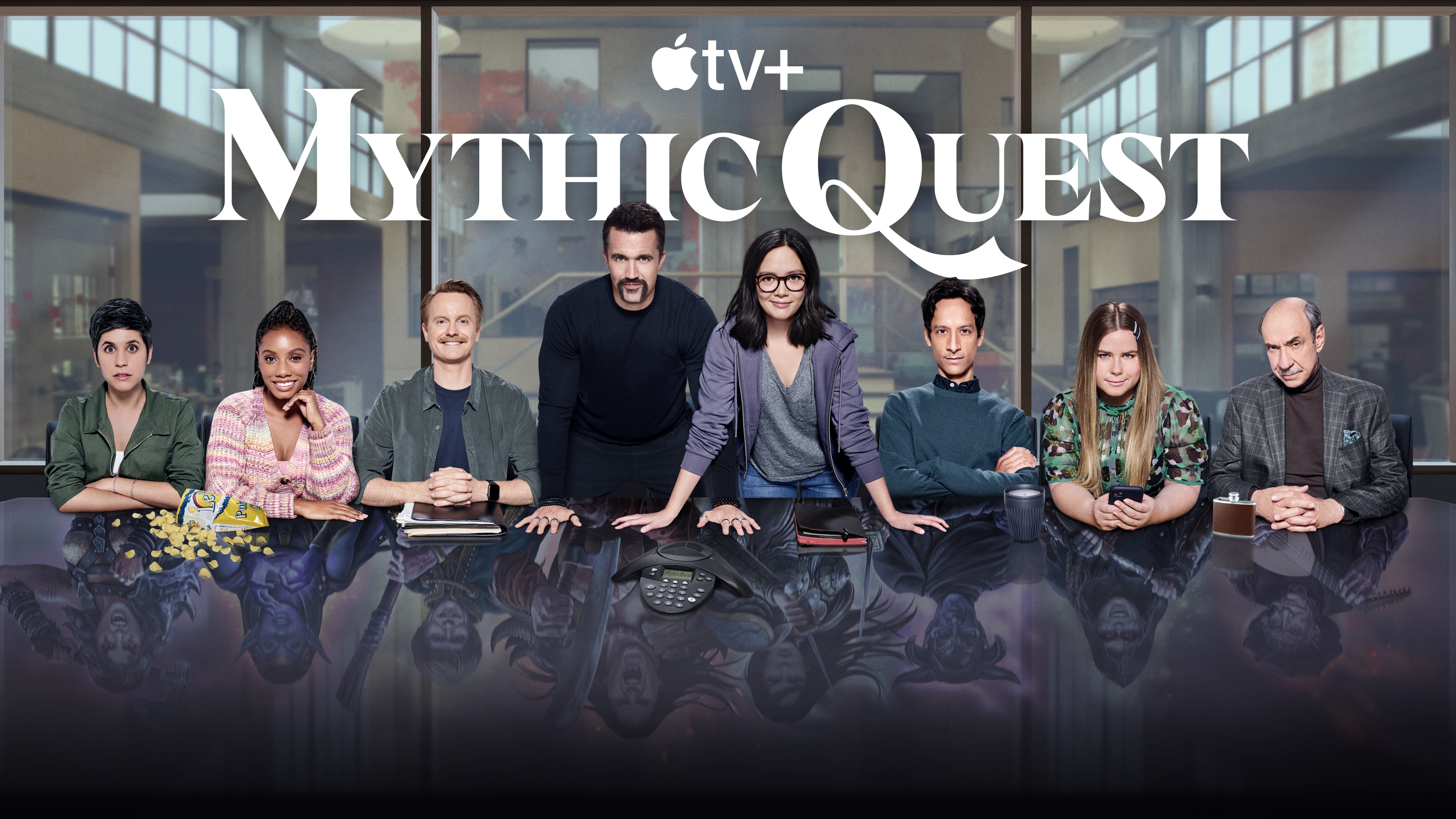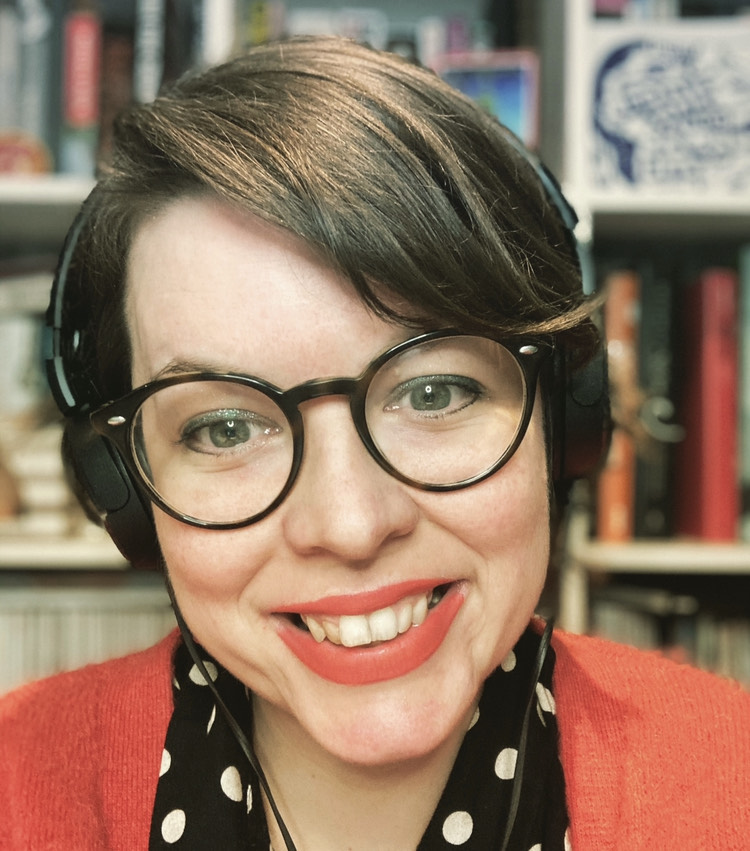First thoughts on Apple TV Plus' ‘Mythic Quest' Season 2
Huzzah! 'Mythic Quest' goes from strength to strength in its sophomore outing.

The latest updates, reviews and unmissable series to watch and more!
You are now subscribed
Your newsletter sign-up was successful
Want to add more newsletters?

ONCE A WEEK
What to Watch
Get all the latest TV news and movie reviews, streaming recommendations and exclusive interviews sent directly to your inbox each week in a newsletter put together by our experts just for you.

ONCE A WEEK
What to Watch Soapbox
Sign up to our new soap newsletter to get all the latest news, spoilers and gossip from the biggest US soaps sent straight to your inbox… so you never miss a moment of the drama!
The below features our first thoughts on Mythic Quest. Weekly reviews will follow.
The first season of Mythic Quest: Raven’s Banquet ended with lead engineer Poppy (Charlotte Nicdao) getting promoted to co-creative director, after a seemingly perpetual struggle to get Ian Grimm (Rob McElhenney) to recognize her worth finally paid off. By the mid-credits of the finale, they were already squabbling, indicating the challenges ahead. Real-world events temporarily got in the way, resulting in two special episodes to bridge the gap. Infecting the video game with a deadly virus as a player option was a funny end to the whole “Blood Ocean” saga and one that had no real-world significance until a global pandemic changed everything.
Poppy spent every waking hour stripping this component from the game in the “Quarantine” special and used this assignment to distract from the isolation. This remotely filmed episode was effective in not only emphasizing the workplace community — even while separated — but also highlighting Poppy and Ian’s vulnerability. Teasing Season 2 with another special episode brings these characters back to the office minus the emotional whiplash of switching from lockdown to normalcy in a beat. Before getting down to business, the LARP “Everlight” event re-establishes relationships and this dollop of escapism plays into the Mythic Quest strength of balancing childish antics with a strong emotional core. Teamwork is significant in the last-minute rule change to the game with the co-creative directors proving how good they are like a double-act. However, it won’t be long until their inflated egos are jostling once more.
Character prickliness and self-absorption is something this series shares with It’s Always Sunny in Philadelphia but creators McElhenney, Charlie Day and Megan Ganz (who served as a writer and executive producer on It’s Always Sunny) are not simply doing a redo of that world. Success and ambition fuel the majority of the Mythic Quest team, and Poppy’s path to the top in an industry dominated by men has been a messy one. In this second season, she is no longer scrambling for the title to match her talent and work, and this leads to different obstacles. One of the most fulfilling aspects of the dynamic at the top is Poppy can be just as stubborn and egotistical as Ian. Nicdao delivered the breakout performance of Season 1 and continues to shine playing a character who isn’t trying to be a “Girlboss” her way through the gaming community. Poppy’s idea of mentoring is not going to score her any feminism awards and the vulnerability she showed in “Quarantine” has not made her more sympathetic to others. She is just as pigheaded as Ian and her lack of time for other departments is a running theme. This friction has led to successful endeavors in the past, although Poppy’s new role will impact how the next expansion is developed.
You might notice this season is simply Mythic Quest and the “Raven’s Banquet” has been dropped. Despite the “Blood Ocean” virus hitting too close to home, “Raven’s Banquet” was a huge success but there is always the next big innovation to consider. New ideas are the lifeblood of all creative industries and the videogame business is no different. Suffice to say this is a thread weaving its way through the overall narrative this year, and sharing an office does not make it any easier. At times, the antagonistic back-and-forths threaten to draw all the oxygen from the room, and despite Nicdao and McElhenney’s crackling chemistry, there is a sense of relief when this storyline takes a backseat. Thankfully, the strong foundation laid in the first season ensures that even when someone is stuck at either a work or personal impasse — sometimes both — the narrative moves forward. The ability to breathe new life into an episode via different pairings and groups is a benefit of an ensemble cast this strong, and there are some surprising team-ups ahead.
Power is central to shifting dynamics: Jo (Jessie Ennis) has never been shy regarding her admiration for Brad (Danny Pudi), and this arc gives both characters the opportunity to become more terrifying. But it would be boring if they were simply plotting evil takedowns and each of them gets to explore their softer side. Some elements of Brad’s story are more impactful than others, which includes a deeper explanation regarding his hardened exterior. Jo can stab you with a single sentence or eye roll and Ennis excels in these moments, which makes any show of weakness from the assistant resonate. Meanwhile, despite his senior position, David (David Hornsby) continues to be the office punching bag, and while this could get too much, he does get some dating help from an unexpected source.
Another workplace sitcom mainstay is the classic will-they-won’t-they pairing that will eventually be consummated. Testers Rachel (Ashly Birch) and Dana (Imani Hakim) spent Season 1 dancing around their feelings for each other and in “Everlight” they shifted closer to kissing territory. That the only romance in this series so far is between two women of color is noteworthy because if there is an LGBTQ pairing there is often a heterosexual love story running parallel. Mythic Quest eschews that option and instead, Rachel and Dana are the focus. Thankfully, they are not only defined by this will-they-won’t-they arc, and both characters spend time exploring their hopes and dreams outside the parameters of this relationship.
The latest updates, reviews and unmissable series to watch and more!
Regret is another theme coursing its way through Mythic Quest and while C.W. Longbottom (F. Murray Abraham) spends a little more time away from the office than everyone else — Abraham was still in New York for some of the production — he gets to reflect on his career. Backstory is important to the MQ world and Craig Mazin’s episode of the same name is another standout. Sometimes you have to look back to move forward and picking the scab of the past is painful but necessary. Last year’s standalone episode “A Dark Quiet Death” starring Jake Johnson and Cristin Milioti was an early indicator of Mythic Quest’s scope and ability to cut deep. It was an ambitious gamble early in the series that highlights how this creative team understands the value of its foundation. Season 2 continues to make the big swings and in the process, it gets to the heart of why watching workplace comedies is so appealing.
Other highlights include the bottle episode directed by Megan Ganz that shines a light on Carol’s (Naomi Ekperigin) endless struggles working in HR with this many opinionated and often childish employees. Considering they are the makers of a video game it shouldn’t come as a surprise that there is a competitive edge to every task, and her exasperation hits new heights. As someone who only plays games on my phone, I also did appreciate the storyline suited to my gaming taste — and jokes at my expense. But it should also be noted that the gaming discourse and impressive Ubisoft graphics are far from alienating, and it is similar to when the coding finer points are discussed on Halt and Catch Fire. Those additional elements add authenticity and texture without pushing the non-gaming audience members away. While it took the first season time to find its feet (as is normal for a sitcom) there is confidence in this second year from the jump. You would never know that they had to rewrite some of the episodes (due to the pandemic), and the shift to normalcy after the two specials is welcome. As with Dickinson and For All Mankind, this is another Apple TV+ show that has gone from strength to strength in its sophomore outing. Even as Ian and Poppy struggle to come up with a new idea, it is clear the Mythic Quest is firing on all cylinders.
Emma Fraser spends most of her time writing about TV, fashion, and costume design; Dana Scully is the reason she loves a pantsuit. Words can also be found at Vulture, Elle, Primetimer, Collider, Little White Lies, Observer, and Girls on Tops. Emma has a Master’s in Film and Television, started a (defunct) blog that mainly focused on Mad Men in 2010, and has been getting paid to write about TV since 2015. It goes back way further as she got her big start making observations in her diary about My So-Called Life’s Angela Chase (and her style) at 14.


